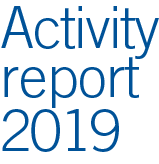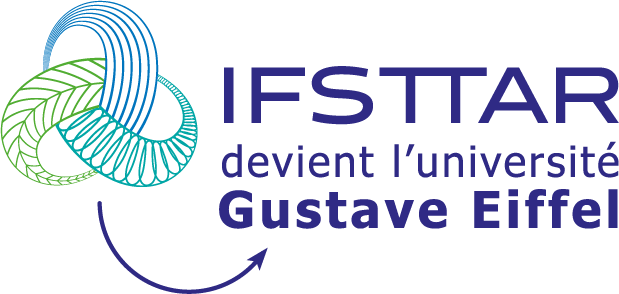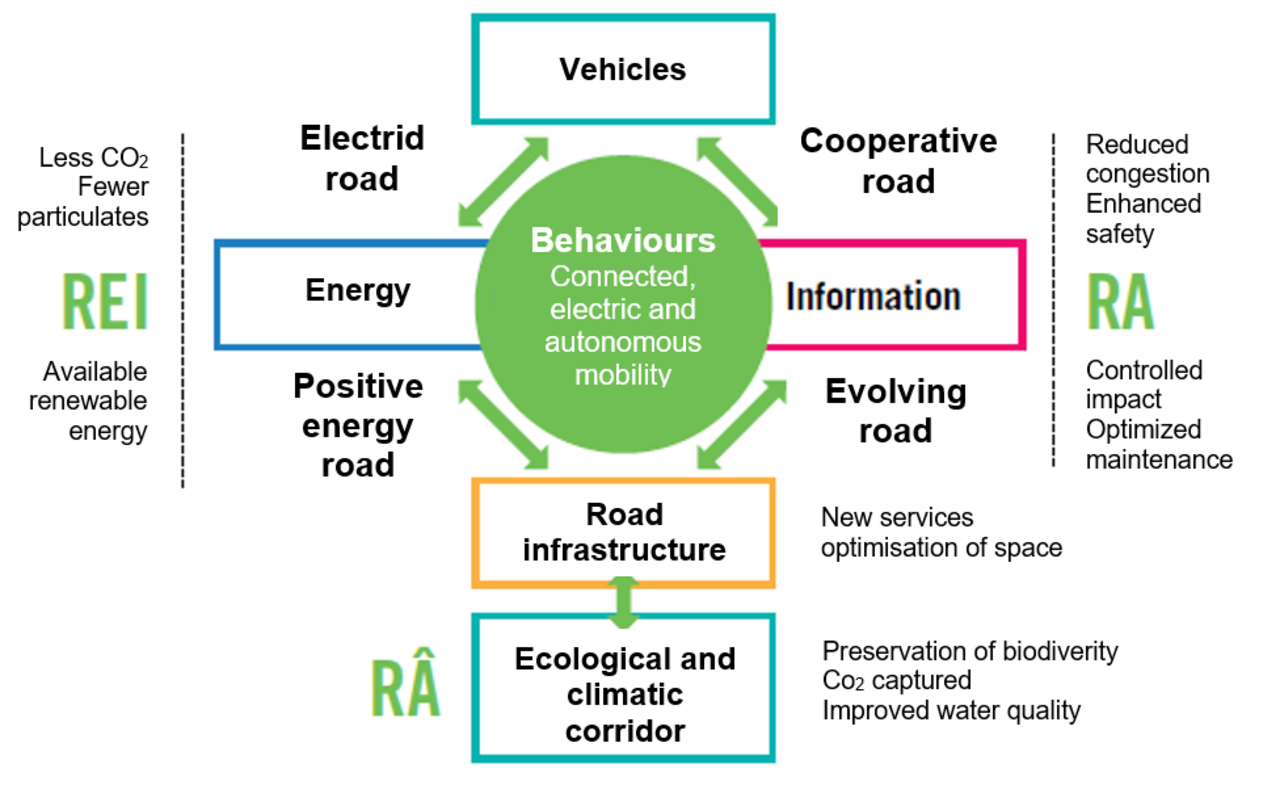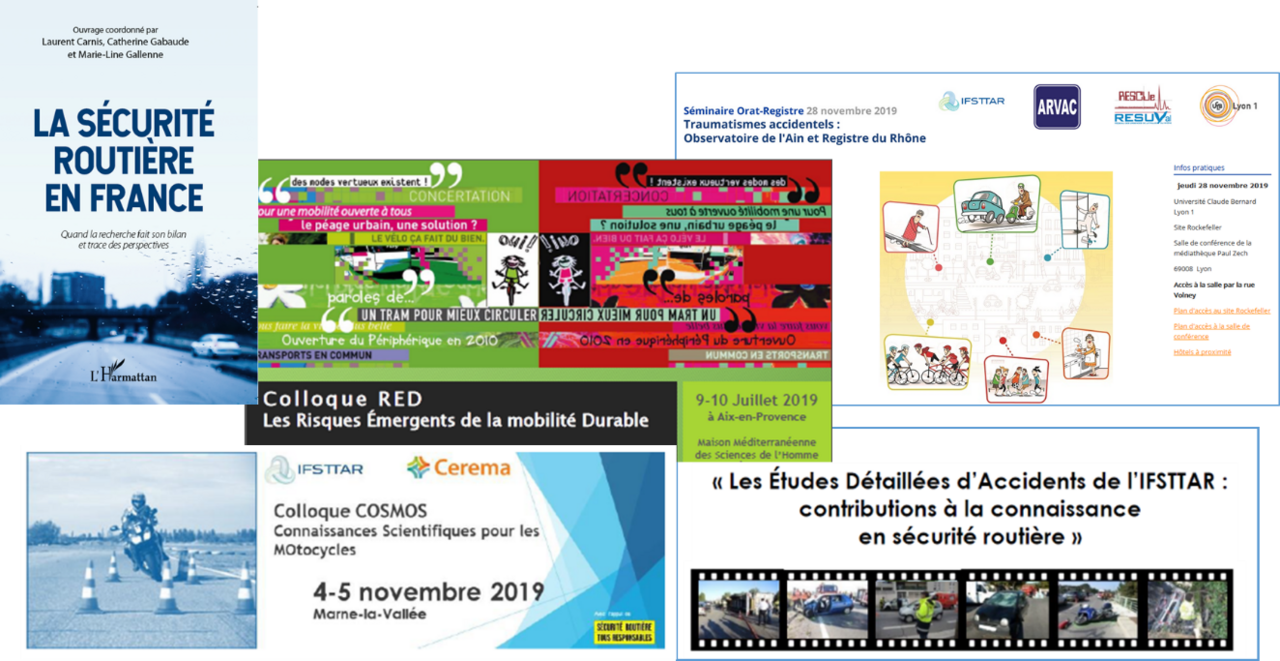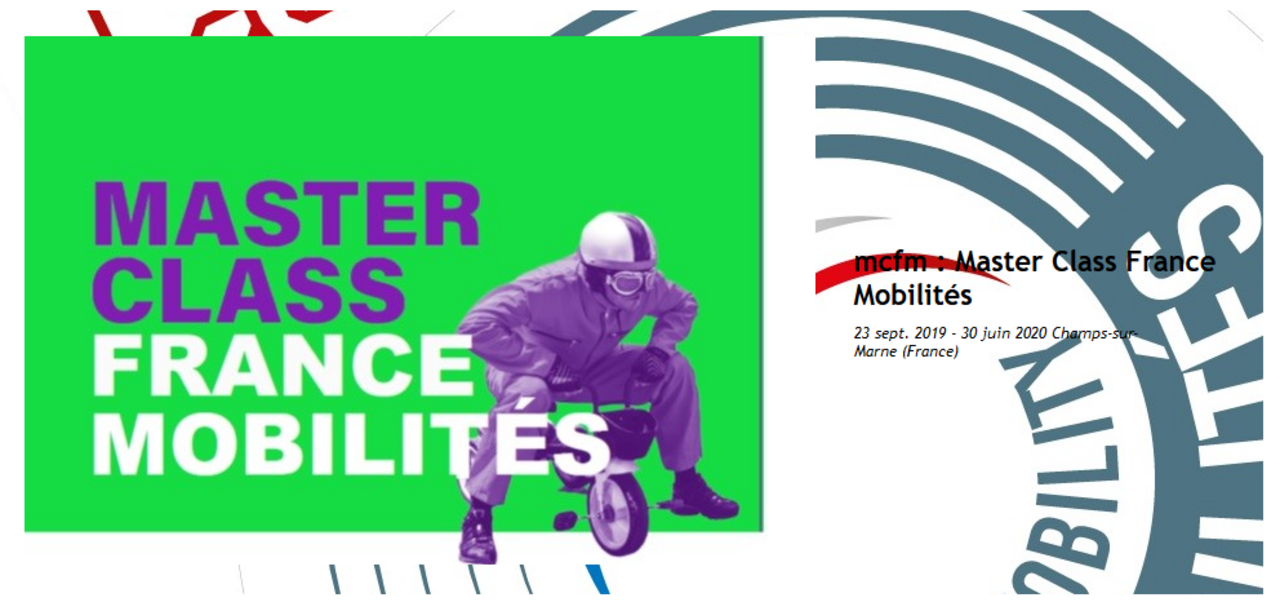Reference

Transfer activities
IFSTTAR has always pursued a policy of exploiting the results of its scientific and technological research, particularly for the purposes of technical support, technology transfer, testing and certification. These activities are carried out primarily for the benefit of the departments of the Institute's supervisory ministries and the other administrations and bodies attached to them.
Various transfer activities have been devised in order to encourage mutual awareness of the needs of the scientific community and those in charge of public decision-making, and to put in place the transfer of knowledge to public policy makers, central government departments and institutional partners. Briefs are produced in order to compare views about scientific issues and issues relating to public policy support. This makes it possible to show the utility of our research and to promote it. These activities also help to convert scientific results into decision-making aids. Transfer seminars are also organised to present research results to the Institute's supervisory authorities.
Transfer activities concerning the management of public space
As major contributors to the carbon footprint of most countries in the world, the mobility and urban sectors are becoming increasingly critical. They influence not only the attractiveness of countries but also the quality of life and health of their inhabitants. The growth of mobility requires leaders to rethink the management of public space. The transformation of motorways into urban boulevards, the development of hybrid spaces or the increase in the functionalities provided by infrastructures to accommodate mobility that is shared, electric, bicycle-based, autonomous, focused more on accessibility and less on flow are all responses to this urgent need to support the transformation of the sector. Today, smart cities are recognised as helping to improve sustainable development indicators by facilitating more efficient, flexible and environment-friendly mobility that consumes less space, on condition that overall behaviour is properly managed.
The national strategy for the development of automated vehicles is a response not only to the challenge of industrial sovereignty, but also to the need to open up regions. France's uniqueness in this area lies in its decision to require the infrastructure to play a major role in automation. Thus, new needs are emerging in terms of new generation infrastructures, known as 5th Generation Roads (R5G), which also have virtues from the point of view of their carbon footprint and ability to adapt to climate change, given that today's climate is already placing heavy demands on network capacity.
Relying on technologies with a high transformative potential to address a range of transport and urban challenges is a promising way forward. This is the path chosen by the COSYS department. The Internet of Things, the intelligent collection of reliable data at all scales (from satellites to embedded sensors and drones), flexible and reliable communications, massive data processing, perception, geolocation, modelling and regulation at all scales, safe systems engineering, cybersecurity and energy management are the scientific mainstays on which the department has decided to invest, in response to the challenges posed by the automated vehicle and the sustainable city. Overall, the aim is to offer the opportunities provided by digitised areas to all citizens at the level they require.
Transfer activities for road safety
A collective book was published under the direction of IFSTTAR researchers by Harmattan in 2019 with the title, La sécurité routière en France : quand la recherche fait son bilan et trace des perspectives. Readers will discover four main sections: road safety issues and the consequences of accidents, road safety policy, the infrastructure-vehicle-use triad, as well as risk and vulnerability factors. Each contribution describes the current state of scientific knowledge on the subject and suggests possible courses of action to improve safety.
Four IFSTTAR researchers are on the committee of experts consulted by the National Road Safety Council (CNSR). These road safety specialists use their scientific and technical expertise to inform the actions of the public authorities. In 2019 they met every month at the Ministry of the Interior to discuss various subjects considered important in the light of the questions raised by the CNSR and the social context. Their work involved, for example, issuing advice on planned measures, producing thematic reports, suggesting courses of action or conducting forward-looking monitoring of the impact of new technologies. The committee thus provided a technical, scientific and professional study of the draft recommendations of the four CNSR commissions: vulnerable users; road education and occupational road risk; vehicles, innovative technologies and infrastructure; health and road travel. Their reports can be consulted on the CNSR website. They deal with electric personal mobility devices (scooters, rollerblades, gyropods, hoverboards), the rules that may be applied for the use and sharing of public space, the safety equipment that may be made compulsory, analysis of pedestrian accidents, the road safety issues related to automated driving and the exemption from the maximum authorised speed of 80km/h on two-way roads outside built-up areas. These recommendations were a major source of inspiration for the Mobility Policy Bill (Projet de Loi d'Orientation des Mobilités (LOM)).
The Transport,Health, Safety Department (TS2) also organised six symposiums or study days in 2019.
- At the symposium on the emerging risks of sustainable mobility (organised by the LMA in July), an analysis of policies in favour of sustainable mobility was presented, identifying the consequences of policies and planning measures, as well as the transformation of spaces and practices;
- TS2 jointly organised with ENTPE the 2019 conference of the ERSA (European Regional Science Association) in Lyon at the end of August, which was attended by more than 900 researchers in the field of the regional sciences;
- The LMA (Laboratory of Accident Mechanism Analysis) organised a study day on "detailed accident studies" (October). After a brief historical survey of their origin and the reasons behind them, the meeting provided examples of how to understand accident occurrence mechanisms and make road design and protection recommendations;
- TS2 was co-organiser with the University of Sherbrooke and the Agence Wallonne Pour la Sécurité Routière of the "1st French-speaking road safety study days" in Quebec City (October) which focused on vulnerable road users;
- The "Accidental Trauma: The Ain Observatory and Rhône Register" workshop (November), jointly organised by UMRESTTE (Epidemiological Research and Surveillance Unit in Transport, Occupation and Environment; IFSTTAR/Université Claude Bernard Lyon 1 - UCBL) and networks of doctors and emergency physicians (Arvac, RESUVal – RESCUe), made it possible for the first time to produce results on everyday accidents in general and to see road accidents in the broader context of accidents of all kinds.
Transfer actions relating to mobility management and the environment
The Planning Mobilities and Environment Department (AME) has undertaken transfer activities on issues relating to changes in mobility practices (goods and passengers):
- Hearing at the National Assembly on Sections 2 and 4 of the Mobility Policy Act;
- Contribution to one of the policy briefs of the T20: "the Infrastructure Nexus: from the Future of Infrastructures to the Infrastructures of the Future", presented in Tokyo in May 2019;
- Contribution to the "zero emission urban freight" white paper produced by the Transport Decarbonation Alliance (TDA);
- Contribution to the international seminar on 28 June 2019 of the forward-looking workshop on robomobile life;
- Contribution to the final seminar of the OBAMO Structural Research Collaboration on the observation and analysis of mobility on 26 September 2019, attended by representatives of the MTES and the European Metropolis of Lille;
- At the request of the MTES, implementation of Master Classes accredited by France Mobilités on all aspects of the governance of innovation. AME also chairs the France Mobilités scientific committee.
- Founding of an urban logistics chair funded by SOGARIS. The programme of the Logistics City Chair focuses on logistics real estate and new trends in urban logistics;
- Work on dense transport services carried out in conjunction with the Normandy Region. The regions are in fact in great need of criteria and methods that will enable them to prioritise their future investments on small lines.
The AME department has also contributed to transfer actions on environmental issues:
- From 16 to 30 June, a summer school bringing together some 50 participants was jointly organised by the department with Université de Montréal and Université Libre de Bruxelles;
- A chair has also been created with the Métropole du Grand Paris in order to help it implement and promote its policy on the circular economy;
- The results of the European CNOSSOS project on the method for characterising the acoustic emissions of medium-heavy vehicles were presented to the Noise Commission and the DGITM (Directorate General for Infrastructure, Transport and the Sea) during a feedback meeting held in April 2019.
